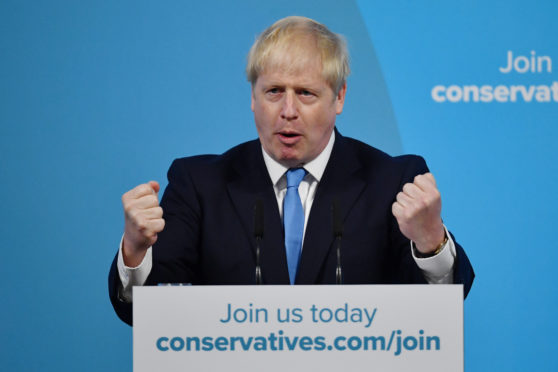It was, as President Trump might have put it, a “beautiful deal”.
I was elated after finally selling my modest apartment in Spain a few weeks after the Brexit referendum result, but it was a big deal for me.
What a battle: a string of buyers had tried holding a gun to my head and bullying me into a bad deal for months.
But faced with a gun, I threw in a grenade. I told every one of them that I was prepared to walk away with no deal, and I wasn’t bluffing. I was holding my nerve.
This possibly sounds familiar?
Finally, a buyer with an Argentine/Spanish background strode onto the stage like a matador. Her opening pass was to slash several thousand euros off my price.
I don’t think there is an exact Spanish translation for how I told my chief negotiator in Espana (my selling agent, that is) to respond.
Behind the hardball was a player who actually wanted a deal, but was backed up to a tight deadline – with no extensions.
Joy of joys: she caved in, but threw in her own bombshell by setting a three-day deadline for completion – or the deal was dead.
It was the art of negotiation stripped back to its basic who-blinks-first form.
We have all experienced it – from buying and selling houses and cars, or haggling with builders or even a dreaded divorce.
Sadly, our bungling Brexit negotiators have not put private and personal pain to their advantage.
Who am I to judge Harvard Law School, whose course on negotiation skills quotes the wisdom of former NYPD hostage-negotiation commander, Lt Jack Cambria.
He said his best negotiators carried life’s scars with them. In particular, to have loved and lost – and felt failure as well as success.
Boris appears to tick all these boxes handsomely, so maybe he is the man.
If there is something significant at stake for both sides – much to gain and plenty to lose – a deal is always achievable, even if the door appears locked.
Will the EU cave in at the last minute over Brexit? To my mind, it would be extraordinary if the EU allowed the UK to crash out with no deal. But I suspect they are keeping their powder dry until it really does look as though they are going to be dragged over a cliff arm-in-arm with us.
They hope Mr Johnson is bluffing, which is why he is spending billions to convince them he is prepared for it if necessary. I think an orderly departure with a revised deal is the safest solution rather than extending mutual misery for the UK and EU with no end in sight. An alternative free-trade deal under GATT rules (which Boris appeared to stumble over on TV) is gaining traction as an escape route – with a transition period, and the Irish backstop shunted into separate negotiations.
Shrinking eurozone GDP growth over the last quarter along with huge potential jobs losses in member states – blamed on no-deal nerves – worry Brussels.
As to Boris’s pugnacious approach, I would say any new PM plunged into this crisis had to play tough. I squirmed with embarrassment when Mrs May went begging to Brussels. Her team not only returned with tails between their legs – that’s how they arrived in Belgium, too. They acted and looked like losers.
Much hysteria over no deal seems driven by naked political ambition, where killing off the Johnson premiership is all that matters. The “nightmare scenario” of him actually pulling off a satisfactory Brexit deal would make him practically unassailable for opponents.
But if he fell on his sword and there was a general election in the wake of a no deal, it is no magic wand. Parliament and public paralysed, and divided bitterly again by Brexit fever in all probability?
SNP strategy depended on a Leave Brexit vote in 2016 creating a public frenzy for IndyRef2, but it didn’t work out that way. Now Ms Sturgeon is staking everything on “mad no-deal Boris” to deliver her Holy Grail on a plate. But how can anyone possibly form an opinion about voting for IndyRef2 merely on endless Doomsday predictions and assumptions? Nothing has happened yet.
As President Roosevelt said, in his great rhetorical inauguration speech at the peak of the Great Depression in the 1930s, “The only thing to fear is fear itself.”
In the art of negotiation, you need bombshells in your armoury – you definitely don’t want the other side to think you are unarmed. A no-deal threat is contentious, but possibly pivotal. Brinksmanship as a negotiating weapon is scary.
As a young child, I remember crying in bed because the adults were saying World War III was about to erupt over the Cuban missile crisis in 1962. I thought they meant the very next morning. US President John F Kennedy called Soviet leader Nikita Khrushchev’s bluff in the ultimate act of brinksmanship as a nuclear conflagration loomed, but the crisis was ultimately solved by a face-saving deal for both sides.
Are the UK and EU really going to press an economic nuclear button?
Surely there is a beautiful deal still in there somewhere.
David Knight is the long-serving former deputy editor of the Press and Journal

